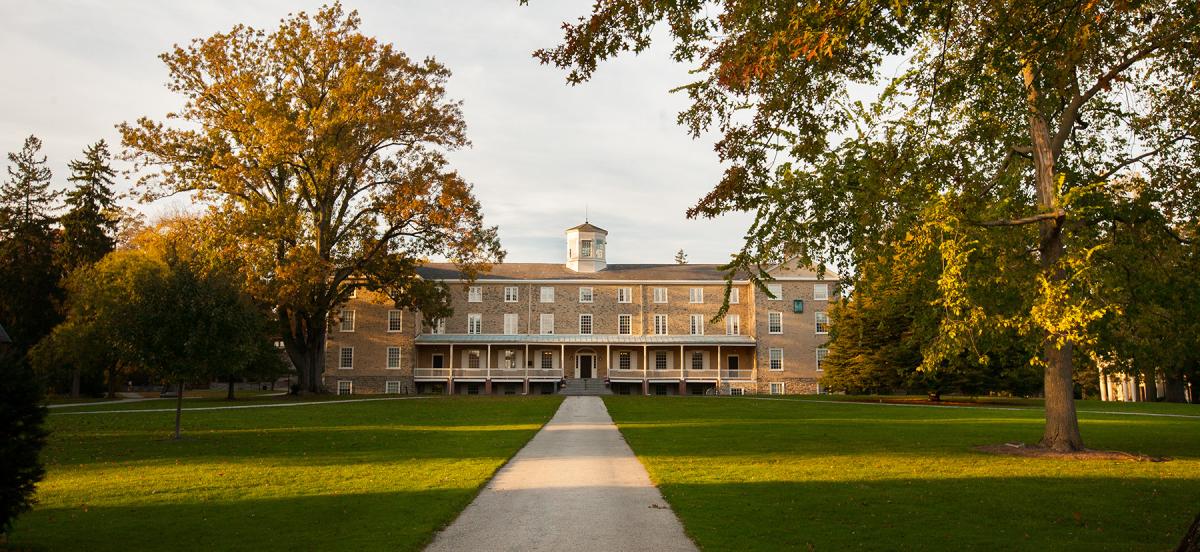Kim Benston Responds to DACA Decision

In a letter to the community, the president reiterated the College's support for all community members and suggested steps for those concerned with the recent White House announcement.
As feared, the Trump Administration has ended the Deferred Action for Childhood Arrivals (DACA) program, a decision that strikes many here at the College as stunningly short-sighted and mean-spirited. DACA was conceived as a bridge to permanent residence for hundreds of thousands of young people who have grown up in the United States and have been fulfilling their potential through education, military service, and professional advancement. The trust they showed by enrolling in the program has been grossly betrayed by this White House.
However, the story is not over: the Administration has put the ball squarely in Congress's court, giving lawmakers six months in which to legislate a solution. Those among us who feel the urge to take action in support of DACA students may wish to lobby our elected representatives in the House and Senate. There are two key pieces of legislation to consider: the BRIDGE Act (which would provide a temporary substitute for DACA) and The DREAM Act (which would provide a path to citizenship). Here are fuller descriptions provided by the National Association of Independent Colleges & Universities:
Two Bi-Partisan Pieces of Legislation in Congress
- The most recent groundwork for bi-partisan legislation on DACA is the "BRIDGE" Act - H.R. 496 in the House, sponsored by Reps. Coffman (R-CO) and Gutierrez (D-IL), and S. 128 in the Senate, sponsored by Sens. Graham (R-SC) and Durbin (D-IL). The "Bar Removal of Individuals who Dream and Grow our Economy" or BRIDGE Act, does NOT grant legal status to DACA recipients. Rather, it allows individuals registered under the DACA program, and others who qualify for DACA status, to maintain work authorization in a new "provisional protected presence" status that would last for three years. So, while its content might be less appropriate for the current situation, its bi-partisan sponsorship could lay the groundwork for a permanent solution from Congress.
- In addition, the DREAM Act has been reintroduced in both sessions of Congress. The DREAM Act would allow individuals brought to the U.S. as children to pursue a higher education, serve in the U.S. military, or work for at least three years to pursue a path to citizenship. Reps. Ros-Lehtinen (R-FL) and Roybal-Allard (D-CA) sponsored companion legislation, H.R. 3440, in the House, and Sens. Graham (R-SC) and Durbin (D-IL) introduced S. 1615 in the Senate.
Those who feel that the rescission of DACA is unwarranted should know that their individual lobbying is tremendously important; elected officials are very attentive to the number of emails and voicemails they receive from actual constituents. (If you wish to be effective, you must keep all communications polite; congresspeople respond much more readily to what they hear as level-headed voters.) I myself will redouble our collaboration with other higher-education institutions, both in Pennsylvania and around the country, in urging Congress to pass appropriate legislation to protect Dreamers. Our collective advocacy will emphasize the Dreamers' considerable contributions to the economic and moral fiber of this country.
Here at the College, we reassert the Resolution Affirming Protection of Non-United States Citizens and Religious Minorities at Haverford College issued by the Board of Managers last December. In particular:
- The College affirms its continuing adherence to strict practices governing the protection of student and employee information, does not release any private student material without consent from the student or an appropriate court order or legal warrant, and will refuse participation in any voluntary act or program (including "E-Verify" or any registration system) that would make such information available to government officials or others.
- Campus Safety will continue to refrain from making inquiries or keeping records regarding the immigration status or religion of either community members or campus visitors.
- The College will not cooperate with agents of Immigration and Customs Enforcement (ICE), Customs and Border Protection (CBP), or other immigration officers seeking access to persons or spaces on campus in order to enforce federal immigration law unless ordered to do so by specific court action.
- The College defines its residential, dining, and learning spaces as "restricted" areas bearing legitimate privacy interests, and therefore requires immigration officials to obtain valid legal warrant before gaining access to such areas.
[Regarding students and exchange visitors attending Haverford with F-1 status: in signing your I-20 form you have appropriately allowed Haverford College and our International Student Support Office to provide required information to the U.S. Citizenship and Immigration Services; you should continue to work with ISS to provide relevant information required to continue your F-1 status.]
At the present time, we ask that all members of the community observe heightened rules of privacy, treating any non-public communications about immigration status as confidential, whether they concern someone related in any way to our community or an individual elsewhere. Please be aware of the need to use social media and other electronic communications responsibly.
We at Haverford reiterate our unwavering support for all members of our community, U.S. citizen and non-citizen alike. We will continue to ensure that every student who enters the College has every chance to fully engage this educational opportunity and to graduate in a timely fashion. Founded on Quaker-rooted values of mutual trust, care, and respect, Haverford College will continue to be guided by that fundamental ethos as we navigate the challenges before us.




